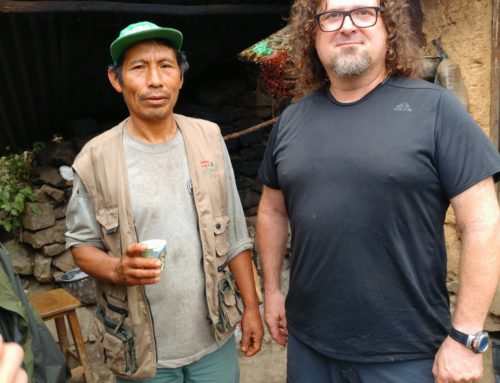I was deeply moved watching the documentary “Happy” this weekend. This film takes a unique look at some of the happiest people and places around the world. These groups, tribes, and communities have qualities in common, like connection, social bonding, inclusion, and cooperation. “Happy” analyzed what aspects of life made these people thrive and looked at happiness as a practice and a skill. I agree with the premise made in the film that we have spent years scientifically studying depression, anger, and negative emotion…why then shouldn’t we measure happiness?
So, why are some people in the world happier than others? I have been on a personal mission to find this out most of my life. We are socialized from a young age to believe fallacies about happiness, like it comes from living “the American dream.” Or having a lot of money. Perhaps a bigger house is the answer, then surely you’d be happy. This documentary found intrinsic goals far exceeded extrinsic goals in the fulfillment department. When someone did something meaningful like a random act of kindness, it made them genuinely happier. When people bought extravagant things or lived in a competitive state of consumerism, it did not bring them lasting joy.
One of the most fascinating finds in the film was about money. Money only increased people’s level of happiness by a mere 10%! I knew money wasn’t the key to happiness, but I thought it offered some nice options. Our genes, it says, are responsible for 50% of our level of happiness, but our intentional behavior, now we’re onto something; these are things we do on a regular basis to increase our level of happiness; like meaningful interaction, participating in our favorite activities, or having new experiences. These were found to be primary building blocks of happiness.
The topic of compassion was spoken about at length. A monk was placed in an MRI machine and asked to do a compassion meditation. When he did, a portion of his frontal lobe lit up like a flame. Stunningly, compassion has the ability to change your brain. Compassion toward others was one of the greatest links to happiness found! Not only feeling compassion, but acting on it; and actually giving of ourselves. We think of others when it comes to compassion, however, it’s time to turn this practice inward and begin to feel this for ourselves; I believe much needed healing could occur this way.
Each of us has our own formula for happiness. Our job is to identify what that formula is. Conduct your own happiness experiment. Begin to pay attention to how you feel when you are doing something. Does it feel good? Does it energize you? Does it inspire? I invite you to look at your daily and weekly routines to identify the things you are doing or people you are with that make you light up. The benefit, you ask? Happy people live longer, are more productive, and enjoy their lives. And isn’t that what living is all about?





Leave A Comment